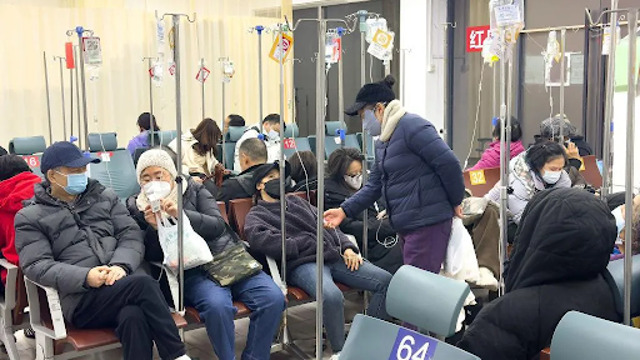
Beijing has experienced a surge in flu-like HMPV cases, especially among children, which it attributed to a seasonal spike. Getty Images via BBC.
In recent weeks, images of hospitals in China crowded with masked individuals have sparked concerns on social media, with some fearing the possibility of another pandemic.
In response, Beijing has confirmed a rise in cases of human metapneumovirus (HMPV), a flu-like illness, particularly affecting children, attributing the surge to the typical seasonal increase of the virus.
However, experts have clarified that HMPV is not the same as Covid-19. They pointed out that HMPV has been circulating for decades, and by the time children reach the age of five, most will have had at least one infection.
While HMPV is usually mild for most, it can lead to more severe illness in very young children and those with weakened immune systems. Here's what you need to know.
What is HMPV and How Does it Spread?
HMPV is a virus that typically causes mild respiratory infections, resembling the flu. First discovered in the Netherlands in 2001, it spreads through direct contact or by touching surfaces contaminated with the virus.
Common symptoms include cough, fever, and nasal congestion.
Children under two, the elderly, and people with weakened immune systems are most at risk. In these groups, a small number of individuals may develop more severe symptoms, such as wheezing, breathlessness, and croup-like symptoms. Some may require hospital treatment, and a few could face life-threatening complications, according to Dr. Hsu Li Yang, an infectious diseases expert from Singapore.
Why are Cases Rising in China?
Like many respiratory viruses, HMPV is most active during late winter and spring, with cold temperatures and more indoor gatherings helping the virus spread. In northern China, this current surge coincides with a cold snap that is expected to last until March.
Countries in the northern hemisphere, including the US and UK, have also seen an uptick in cases since October of last year, says Jacqueline Stephens, an epidemiologist at Flinders University in Australia.
"While concerning, the rise in cases seems to follow the usual seasonal pattern we see every winter," she added.
Is HMPV Like Covid-19? How Concerned Should We Be?
Experts have reassured the public that fears of an HMPV-driven pandemic are exaggerated. Unlike Covid-19, which was caused by a new virus, HMPV has been around for years. This means that most people have some level of immunity due to prior exposure, reducing the likelihood of a widespread global crisis.
"By the time children turn five, most will have had at least one infection, and they are likely to experience several more over their lifetime," said Paul Hunter, a medical professor at the University of East Anglia in the UK. "So, there is no immediate reason to believe that this will become a global health emergency."
However, Dr. Hsu still recommends taking precautions, such as wearing masks in crowded spaces, avoiding crowds when possible, practicing good hand hygiene, and getting vaccinated against the flu, especially for those at higher risk of severe illness from respiratory viruses.















